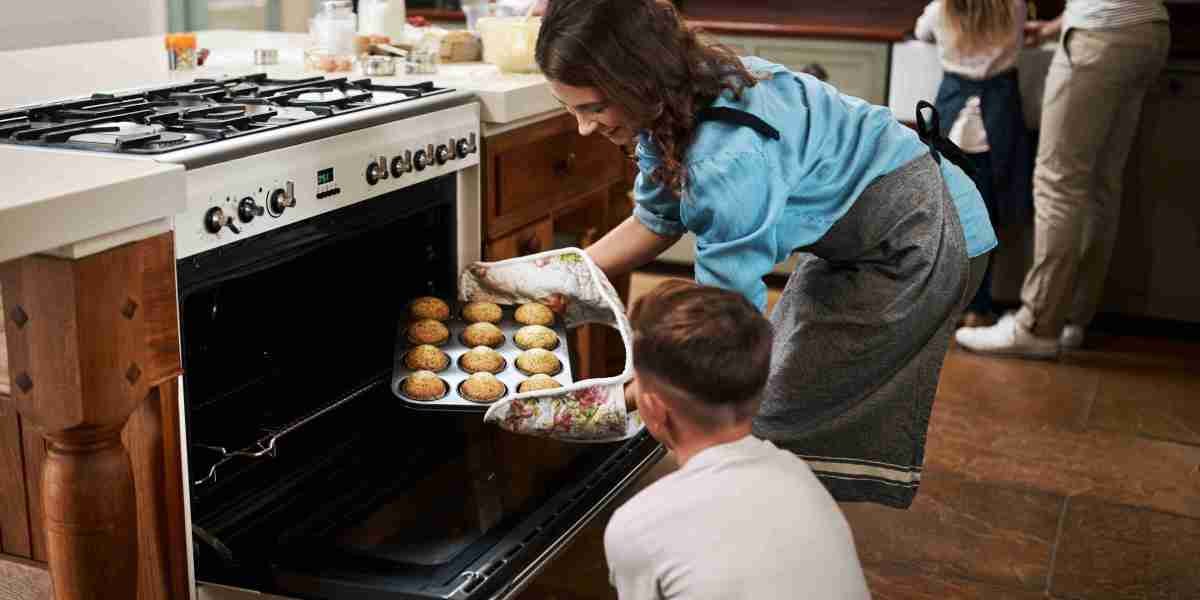
The Rise of Built-In Ovens: A Comprehensive Guide
In the world of modern cooking areas, built-in ovens have carved a specific niche on their own, changing both the functionality and visual appeal of cooking areas. This article dives into the various advantages of built-in ovens, their installation considerations, and a comparison with standard freestanding models.
Understanding Built-In Ovens
Built-in ovens are designed to be integrated ovens and hobs seamlessly into kitchen cabinetry, providing a streamlined and advanced look. Unlike freestanding models, which rest on the flooring, built-in ovens are mounted at eye level or under counter tops, making them ergonomic and simple to access.
Types of Built-In Ovens
Built-in ovens been available in a number of types, each dealing with different cooking needs and preferences. Here's a quick summary:
- Single Built-In Oven: Ideal for smaller kitchen areas, supplying sufficient cooking space for a lot of needs.
- Double Built-In Oven: Offers different compartments for cooking, ideal for larger families or those who often amuse visitors.
- Steam Ovens: Utilizes steam cooking for much healthier meals, retaining nutrients and moisture.
- Convection Ovens: Equipped with fans to flow hot air equally, guaranteeing quicker and more constant cooking.
| Type | Description | Best for |
|---|---|---|
| Single Built-In | One spacious oven compartment | Little households |
| Double Beko 99L Built-In Double Oven - Stainless Steel | Two compartments for simultaneous cooking | Large households |
| Steam Oven | Steam-based cooking approach | Health-conscious cooks |
| Stove | Fan-assisted cooking for even heat circulation | Those who bake often |
Benefits of Built-In Ovens
Visual Appeal
Built-in ovens supply a streamlined, integrated look that boosts the overall appearance of a kitchen. They come in various designs and surfaces that can match existing cabinets and decoration, developing a streamlined and cohesive look.
Space Efficiency
Created to fit flawlessly into kitchen designs, built-in ovens can conserve important floor area, making them ideal for smaller kitchens. By saving space, property owners can take advantage of extra storage alternatives or more counter area for food preparation.
Ergonomics
Setting up ovens at eye level gets rid of the need to flex down, decreasing stress when checking on food or getting rid of hot meals. This ergonomic benefit is especially advantageous for people with movement obstacles.
Versatility
Built-in ovens often feature a range of cooking modes and functions, from convection cooking to self-cleaning choices, giving users flexibility in their cooking techniques.
Energy Efficiency
Modern built-in ovens are typically designed to be more energy-efficient than conventional models. Features such as much better insulation and advanced heating components assist decrease energy consumption.
Setup Considerations
While the advantages of built-in ovens are substantial, specific factors require to be thought about before opting for this kitchen upgrade:
Space Requirements: Built-in ovens need particular area measurements build in oven terms of width, height, and depth. Precise dimensions must be taken into consideration to prevent installation concerns.
Electrical and Gas Hookups: Built-in ovens might require particular electrical wiring setups or gas connections. Qualified professionals ought to handle this setup to guarantee security and compliance with regional codes.
Cabinetry Compatibility: The design and structure of existing kitchen cabinetry must be examined. Built-in models may necessitate modifications to cabinets, or new cabinetry may require to be created to accommodate them.
Expense: Built-in ovens generally come at a premium price compared to freestanding models. Homeowners ought to examine their budgets accordingly and think about long-term benefits.
Installation Steps
Below are the basic steps included in setting up a built in electric oven-in oven:
- Preparation: Measure the space and eliminate old appliances if required.
- Electrical/Gas Setup: Ensure the necessary electrical or gas connections are ready and examined for compliance.
- Cabinet Adjustment: Modify cabinets as required to fit the built-in oven.
- Positioning: Carefully put the oven into the designated space and level it.
- Connection: Connect the oven to power or gas and ensure all fittings are secure.
- Evaluating: Turn on the oven to ensure it runs correctly.
Often Asked Questions (FAQs)
1. Are built-in ovens simple to install?
While standard installation can be managed by a helpful person, it is a good idea to employ a professional, especially when handling electrical or gas fittings.
2. Can I change my freestanding oven with a built-in oven?
Yes, however it will need cautious measurement and possibly some adjustments to your existing cabinets to fit the built-in design.
3. How do built-in ovens affect kitchen resale value?
Built-in ovens can boost a kitchen's appeal, often making it more attractive to prospective purchasers, therefore supporting a greater resale value.
4. Are built-in ovens more costly than freestanding designs?
Normally, built-in ovens are more costly due to their style and features. Nevertheless, their enhanced visual appeals and performance might justify the expense for lots of house owners.

5. What are the very best brands for built-in ovens?
Some acknowledged brands consist of bosch series 8 built-in oven with air fry, Miele, KitchenAid, and Electrolux, each known for their quality and development.
Built-in ovens represent a considerable leap in kitchen technology, using a mix of design, effectiveness, and functionality. While they need mindful factor to consider regarding space, installation, and cost, the benefits they provide make them an attractive alternative for modern-day property owners. Whether updating an existing kitchen or designing a new one from scratch, built-in ovens can elevate the cooking experience and enhance general kitchen aesthetics. From functionality to beauty, they truly embody the best of modern cooking services.







